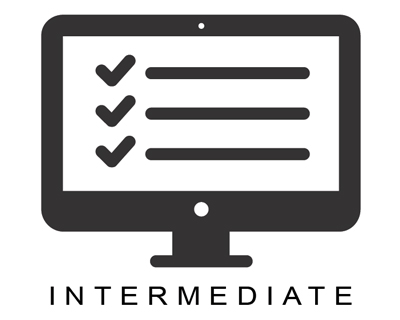Soil, often seen merely as a medium for plant growth, is a vital living resource essential for sustaining life. However, human activities and climate changes can degrade soil health, leading to reduced capacity to support plant growth and ecological diversity. One key indicator of degraded soil is low soil carbon content, which can take years… Continue reading ALT.212-Use of Microbial Inoculant Compost & Biochar for Revegetation of Degraded Soils-AC24.CREF
Category: Intermediate
ALT.211-Use of Biochar and Composted Yardwaste on Citrus and Tomatoes in Florida-AC24.CREF
Biochar, a by-product of pyrolysis, offers numerous benefits to soil health, including improved root penetration, water retention, and nutrient retention. Its application in horticulture, particularly in citrus and tomato production, has shown promising results in increasing fruit yields and improving soil quality. However, the effectiveness of biochar application depends on optimal application rates and frequency,… Continue reading ALT.211-Use of Biochar and Composted Yardwaste on Citrus and Tomatoes in Florida-AC24.CREF
FAC.229-Site Management and Optimization in a Multi-Facility Environment-AC24.USCC
Scott, from Waste Management (WM), will offer insights into the management of organic processing sites across the US and Canada. He will discuss strategies for ensuring compliance with regulations, enhancing operational efficiency, and promoting consistency among teams. The presentation will highlight methods and tools employed by WM to measure and communicate site performance, as well… Continue reading FAC.229-Site Management and Optimization in a Multi-Facility Environment-AC24.USCC
FAC.228-Creating Your Facility Operating Plan-AC24.USCC
Matt Cotton, a veteran compost facility consultant, will provide insights into crafting a comprehensive Operating Plan for composting facilities. The session will cover fundamental elements such as documenting operating procedures, ensuring regulatory compliance, minimizing site impacts, and maintaining records. Additionally, it will delve into essential health and safety principles, addressing odor, stormwater management, and fire… Continue reading FAC.228-Creating Your Facility Operating Plan-AC24.USCC
BUS.243-Compliance – A Necessary Feedstock for Your Compost Operation-AC24.USCC
Discover how Recology’s environmental team in the Pacific Northwest transformed compliance challenges into opportunities by building a robust compliance program for their three compost facilities in Oregon. Learn how strategic partnerships with operational staff and proactive compliance management have enhanced relationships with regulatory agencies, the public, and customers. Explore how this approach adds value to… Continue reading BUS.243-Compliance – A Necessary Feedstock for Your Compost Operation-AC24.USCC
HEA.212-Top Safety Hazards in Composting and Mitigation Techniques-AC24.USCC
This presentation outlines the top safety hazards encountered in composting operations, such as smolders, mobile equipment, and risks related to pedestrians and spotters. It discusses mitigation techniques implemented to address these hazards, including establishing policies and procedures for equipment distance, emergency materials management, and proper protective equipment. The presentation emphasizes the importance of continually evolving… Continue reading HEA.212-Top Safety Hazards in Composting and Mitigation Techniques-AC24.USCC
PRO.227-Using Compost to Manage PFAS Contamination in Livestock on a Central Maine Farm-AC24.USCC
The presentation features the results of PFAS remediation efforts undertaken on a series of contaminated animal mortalities at a Central Maine Farm using composting as the management tool. The talk will focus on materials and methods utilized, compost process monitoring and testing results, lessons learned and future PFAS remediation efforts and management directions.Speakers: Mark KingDuration:… Continue reading PRO.227-Using Compost to Manage PFAS Contamination in Livestock on a Central Maine Farm-AC24.USCC
POL.238-Protecting Compost Land Application Amid PFAS Concerns – Current Regulatory and Legal Developments-AC24.USCC
This presentation addresses the increasing regulatory and legal scrutiny surrounding PFAS in compost and composting facilities. Despite PFAS being present in organic materials used in compost, the rush to regulate it may not be scientifically justified. The talk examines current regulations and legal challenges facing the compost industry and proposes using sound science to demonstrate… Continue reading POL.238-Protecting Compost Land Application Amid PFAS Concerns – Current Regulatory and Legal Developments-AC24.USCC
VIS.220-American Society of Landscape Architects – Climate Action Plan-AC24.USCC
Emily, the Immediate Past President of the American Society of Landscape Architects (ASLA), has dedicated her tenure to promoting the Society’s Climate Action Plan and related resources. Through her advocacy, she emphasizes the importance of understanding and measuring the impact of design decisions, material choices, and implementation strategies. Emily advocates for collaborative efforts to create… Continue reading VIS.220-American Society of Landscape Architects – Climate Action Plan-AC24.USCC
USE.230-Compost and Climate Resilience-AC24.USCC
The session will cover various compost characteristics and their optimal use for soil improvement. It will explore the impact of compost on diverse soil properties such as nutrient availability, water retention, salinity, disease resistance, and bulk density.Speakers: Sally BrownDuration: 24 minutesCredits: 0.5Member Price: $30.00Non-Member Price: $52.50Purchase Course Now
